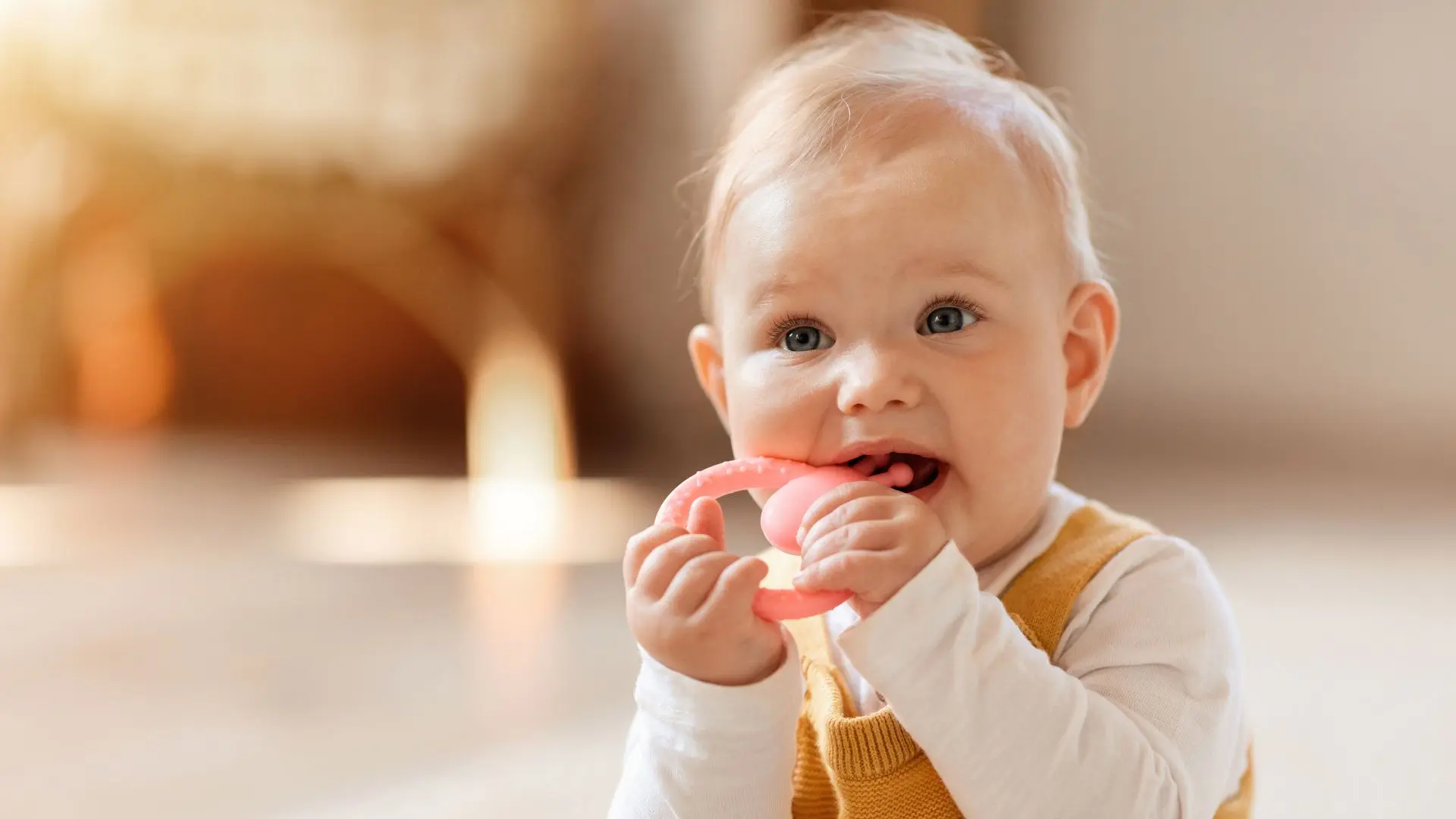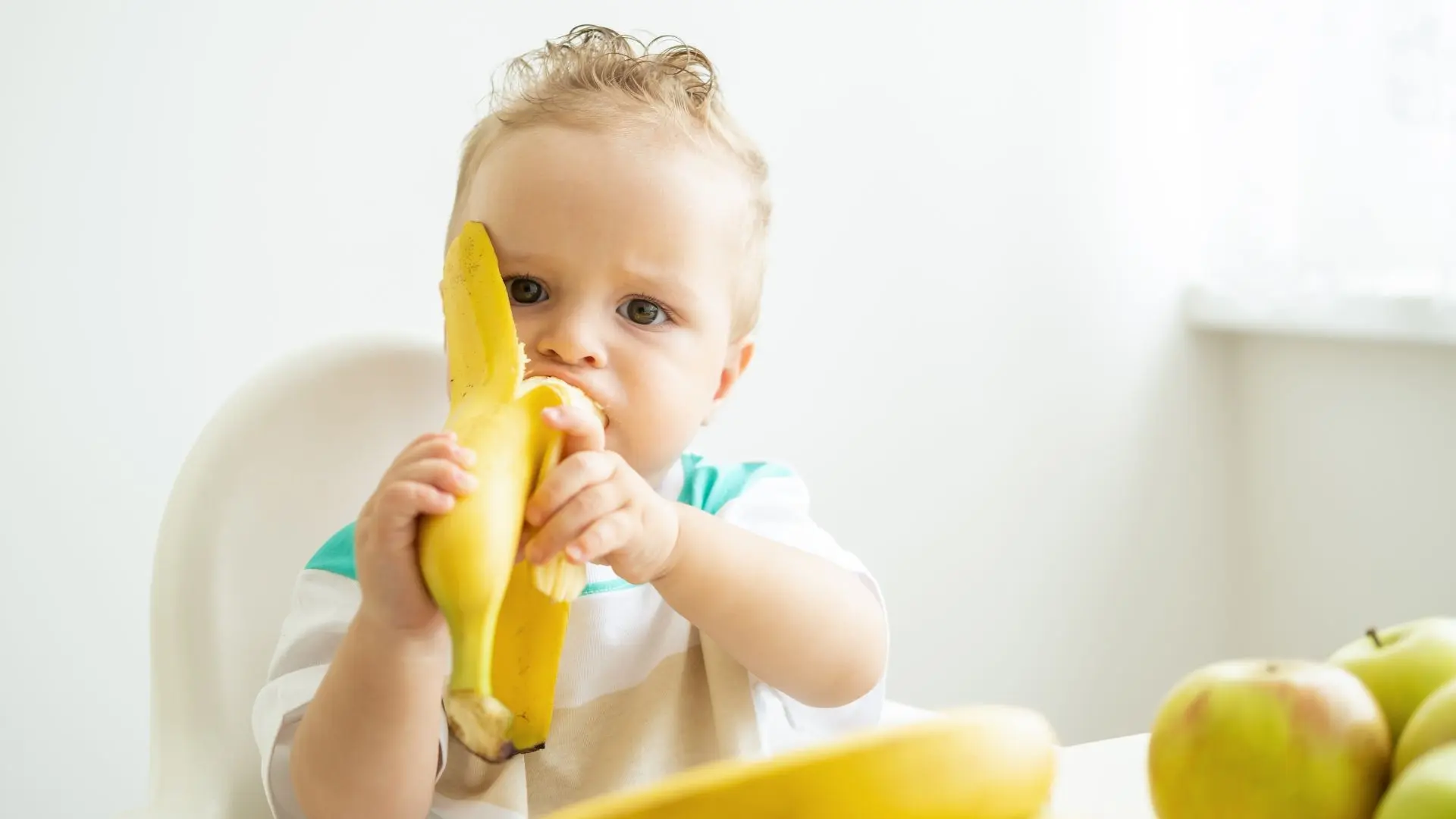Baby poop with mucus may be normal or a sign of an issue. Get informed with our guide on what causes it, how to treat it, and when to worry.

As parents, we constantly monitor our baby’s health, and one of the most common indicators we focus on is their poop. Changes in texture, color, or frequency of bowel movements can often raise questions.
Baby poop with mucus can be one of those changes that leave you puzzled or even concerned. While a small amount of mucus in a diaper is usually not a concern, larger amounts or recurring mucus, especially with diarrhea, may point to allergies, infections, or other issues.
Mucus is naturally secreted by the intestines to aid digestion, but when it appears frequently, it could signal an underlying problem. In this guide, we’ll explore the causes of mucus in baby poop and when to consult a doctor.
Is Mucus in Baby Poop Normal?
Before we delve into the causes and solutions, let’s answer the most pressing question: Is baby poop with mucus normal?

Understanding Normal vs. Abnormal Mucus
Mucus is a slippery substance that is naturally produced by the body. It lines various parts of the digestive system, including the intestines, where it acts as a lubricant to help stool pass more easily. Therefore, a small amount of mucus in your baby’s stool isn’t necessarily something to worry about.
Normal mucus in stool is usually thin, clear, or slightly white and may appear sporadically.
Abnormal mucus in stool tends to be persistent, and thick and may be accompanied by other symptoms like blood, diarrhea, or a change in your baby’s behavior.
Signs of Concern in Mucus
While occasional baby poop with mucus might be harmless, it’s essential to understand the warning signs that indicate a deeper issue. You should be concerned if:
- The mucus is thick and jelly-like.
- The mucus is persistent and appears in multiple diapers.
- The mucus is accompanied by blood, a foul smell, or a significant change in color (green, black, or red).
- Your baby shows other symptoms such as fussiness, diarrhea, vomiting, or fever.
Factors to Consider
To determine if baby poop with mucus is a cause for concern, consider the following factors:
Baby’s age: Newborns and infants are still adjusting to their environment, feeding, and digestive processes. Their poop is often inconsistent in texture and color.
Feeding method: Breastfed babies may have different stool characteristics compared to formula-fed babies. Transitioning to solids also affects stool consistency.
Other signs of illness: Check for additional symptoms such as dehydration, lethargy, or refusal to eat.
In most cases, small amounts of mucus in the stool of an otherwise healthy baby are not alarming. However, if you observe ongoing changes or symptoms, it’s worth consulting your pediatrician.
What Are the Causes of Mucus in Baby’s Poop?
There are various reasons why you may notice baby poop with mucus, ranging from benign to more serious. Understanding the possible causes can help you determine the appropriate next steps.

1. Infections
One of the common causes of baby poop with mucus is an infection. These infections may be viral, bacterial, or parasitic in nature and cause inflammation of the intestines.
Viral infections: These include rotavirus, norovirus, or adenovirus, which can irritate the gut lining, causing mucus production.
Bacterial infections: Bacteria like salmonella, E. coli, or campylobacter can cause severe diarrhea, often accompanied by mucus, and sometimes blood.
Parasitic infections: Parasites like giardia can also lead to baby poop with mucus.
If your baby has a gastrointestinal infection, you may also notice symptoms such as diarrhea, vomiting, fever, and a general sense of discomfort. Medical attention is crucial in these cases to avoid dehydration and ensure proper treatment.
2. Food Sensitivities and Allergies
Another significant cause of baby poop with mucus is food sensitivities or allergies. When your baby’s digestive system reacts to certain proteins, it can lead to inflammation of the intestines, resulting in mucus production.
Common allergens: Dairy, soy, wheat, and eggs are typical allergens that can cause a reaction.
Milk protein intolerance: Babies can be sensitive to the proteins found in cow’s milk, whether in formula or breast milk if the mother consumes dairy. This can cause irritation in the gut, leading to mucus.
Soy allergy: Soy-based formulas or foods containing soy can sometimes cause similar reactions.
Food allergies often manifest with other symptoms such as skin rashes, vomiting, diarrhea, and fussiness. If you suspect food sensitivities, consult with your pediatrician about possible dietary adjustments.
3. Teething
Yes, teething can lead to baby poop with mucus. When babies teethe, they tend to produce excess saliva, which they swallow. This extra saliva can cause irritation in the digestive tract, leading to looser stools and sometimes mucus.
While teething-related baby poop with mucus is generally harmless, you should still keep an eye on other symptoms to rule out any infections or other causes.
4. Dietary Changes
When your baby begins transitioning from breast milk or formula to solids, their digestive system goes through significant changes. These changes can sometimes result in baby poop with mucus, especially as their intestines adjust to processing new foods.
Introducing solids: The introduction of new textures and nutrients can cause minor digestive disturbances, including mucus.
Reaction to specific foods: Certain foods, particularly high-fiber foods, can be harder for babies to digest, leading to temporary mucus production.
This is often a short-term issue that resolves once your baby’s digestive system adapts to the new diet. However, keeping a food diary can help track any foods that seem to trigger baby poop with mucus.
5. Digestive Disorders
While less common, chronic digestive disorders can lead to baby poop with mucus. Conditions like inflammatory bowel disease (IBD), colitis, or Crohn’s disease cause inflammation in the intestines, leading to increased mucus production.
Colitis: Inflammation of the colon can cause persistent diarrhea and baby poop with mucus.
Crohn’s disease: A more severe inflammatory condition affecting the entire digestive tract, which can cause mucus, blood, and discomfort.
These conditions are rare in infants but should be considered if your baby shows persistent symptoms or has a family history of digestive issues.
6. Other Factors
Several other factors can contribute to baby poop with mucus, such as:
Stress: Changes in routine, environment, or even emotional stress can sometimes trigger mucus in a baby’s stool.
Antibiotics: If your baby has recently been on antibiotics, it can disrupt the gut flora, leading to mucus production in their stool.
Environmental changes: Factors like a change in climate, introduction to new bacteria in a new environment, or even a different water source can lead to baby poop with mucus.
Understanding the cause of baby poop with mucus can help guide you in finding the right solution. If the mucus is persistent or accompanied by other worrying symptoms, it’s always a good idea to speak with your pediatrician.
How to Remove Mucus from the Stomach?
If your baby is dealing with baby poop with mucus, you might be wondering what you can do to help. While some causes of mucus in the stool will resolve on their own, there are steps you can take to help reduce mucus in the digestive system.

1. Hydration
The most straightforward and effective way to help your baby eliminate excess mucus from their digestive tract is through proper hydration. Water helps thin out mucus and makes it easier for the body to pass it through the digestive system.
Breastmilk or formula: For younger babies, continue offering breastmilk or formula frequently to keep them hydrated.
Water: For older babies who are eating solids, offering water between meals can help with digestion and mucus elimination.
2. Dietary Adjustments
Diet plays a crucial role in managing baby poop with mucus. Adjusting what your baby eats can help soothe their digestive system and reduce mucus production.
Elimination diets: If you suspect a food allergy or sensitivity, try an elimination diet. Remove the suspected food (such as dairy or soy) from their diet and gradually reintroduce it to identify the culprit.
Gentle foods: Offer gentle, easily digestible foods that soothe the gut. Examples include:
- Bananas
- Rice
- Applesauce
- Toast (BRAT diet)
- Sweet potatoes
- Oatmeal
These foods can help solidify stools and soothe irritation in the digestive system.
3. Probiotics
Supporting your baby’s gut health is essential when dealing with baby poop with mucus. Probiotics are beneficial bacteria that promote a healthy digestive system and can help reduce inflammation and mucus production.
Probiotic supplements: You can find baby-friendly probiotic drops or powders that can be added to formula or food.
Probiotic-rich foods: If your baby is eating solids, you can offer them foods rich in probiotics, such as yogurt (with no added sugar) or kefir.
Always check with your pediatrician before introducing probiotics to ensure it’s suitable for your baby.
4. Avoiding Trigger Foods
Identifying and avoiding foods that trigger mucus production is crucial. Some common foods that may irritate your baby’s digestive system and cause the baby to poop with mucus include:
- Dairy products (in case of lactose intolerance or cow’s milk protein allergy)
- Soy-based products
- Processed foods
- Gluten-containing grains (in case of celiac disease or gluten sensitivity)
By keeping a food diary and noting any patterns, you can help pinpoint which foods are causing baby poop with mucus and eliminate them from your baby’s diet.
5. Gradual Introduction of Solids
When transitioning your baby from breastmilk or formula to solid foods, do so gradually. Introducing too many new foods at once can overwhelm your baby’s digestive system and lead to baby poop with mucus.
Start with single-ingredient foods: Introduce one food at a time, such as pureed carrots or mashed bananas. Wait a few days before introducing another new food to monitor how your baby’s digestive system reacts.
Monitor for reactions: Keep an eye on your baby’s poop, skin, and overall behavior after introducing new foods. If you notice a baby poop with mucus after introducing a particular food, consider eliminating it and reintroducing it later to confirm it as a trigger.
6. Maintaining a Balanced Diet
A balanced diet is crucial for your baby’s overall health and can help reduce baby poop with mucus. Focus on providing a variety of foods that are gentle on the digestive system and support gut health.
Fruits and vegetables: Offer a range of fruits and vegetables that are easy to digest, such as pureed peas, sweet potatoes, and applesauce.
Whole grains: Introduce whole grains like oats and brown rice, which are high in fiber and can help regulate bowel movements.
Healthy fats: Include healthy fats from sources like avocado and olive oil to support your baby’s growth and digestion.
Maintaining a balanced diet ensures that your baby receives the necessary nutrients while minimizing digestive issues that could lead to baby pooping with mucus.
7. Monitoring and Adjusting Feeding Practices
If you’re breastfeeding, your diet can also influence your baby’s digestion. Certain foods that you consume may pass through breast milk and cause baby poop with mucus in your baby. Consider the following adjustments:
Eliminate dairy: If your baby shows signs of dairy sensitivity, try eliminating dairy from your diet and see if there’s an improvement.
Watch for other triggers: Common allergens such as soy, nuts, and eggs in your diet can also affect your baby’s digestion. Experiment with removing these foods and observing any changes.
For formula-fed babies, consider trying a hypoallergenic or dairy-free formula if you suspect that milk protein intolerance is causing baby poop with mucus.
8. Environmental and Lifestyle Factors
Finally, consider other environmental and lifestyle factors that may contribute to baby poop with mucus:
Minimize stress: Babies can be sensitive to changes in their environment or routine. Try to maintain a calm, consistent routine to reduce stress, which can affect digestion.
Ensure proper hygiene: Keep feeding utensils, bottles, and your baby’s hands clean to prevent infections that could lead to mucus in the stool.
Avoid unnecessary antibiotics: While antibiotics can be lifesaving, they can also disrupt the natural balance of bacteria in the gut. If your baby needs antibiotics, ask your pediatrician about ways to support gut health during and after treatment.
Taking these steps can help reduce or eliminate baby poop with mucus and promote a healthy digestive system for your baby.
When to Seek Medical Attention
While baby poop with mucus can often be managed with dietary and lifestyle changes, there are times when it’s important to seek medical attention. Understanding when to consult your pediatrician can help you ensure that your baby receives the care they need.

1. Warning Signs in Baby Poop with Mucus
Some signs indicate that baby poop with mucus may be part of a more serious condition. You should contact your pediatrician if you observe any of the following:
Blood in the stool: If you see blood mixed with mucus or separated from it, this could indicate a more serious condition like an infection, food allergy, or even a tear in the digestive tract.
Persistent diarrhea: Diarrhea lasting more than a couple of days, especially if accompanied by mucus, can lead to dehydration and may signal an underlying infection.
Fever: A fever combined with baby poop with mucus might suggest an infection that requires medical attention.
Vomiting: Frequent vomiting along with mucus in the stool could indicate a gastrointestinal issue that needs to be addressed.
Weight loss or failure to gain weight: If your baby is not gaining weight as expected or is losing weight, and you notice baby poop with mucus, this could indicate a nutritional absorption issue.
Dehydration: Signs of dehydration include a dry mouth, fewer wet diapers, and lethargy. Dehydration can be dangerous, especially in infants, and requires immediate attention.
2. Consulting a pediatrician
When you observe any concerning symptoms, or if you’re unsure about the cause of baby poop with mucus, it’s important to consult your pediatrician. They may recommend several diagnostic steps to identify the underlying cause:
Stool samples: Your pediatrician might request a stool sample to check for infections, blood, or other abnormalities.
Allergy testing: If a food allergy is suspected, your pediatrician may recommend allergy testing to identify specific triggers.
Imaging tests: In rare cases, imaging tests like an abdominal ultrasound may be used to rule out structural issues in the digestive tract.
Dietary evaluation: A review of your baby’s diet (or your diet if you’re breastfeeding) may help identify potential allergens or irritants.
Based on the findings, your pediatrician will recommend the appropriate treatment, which may include dietary changes, medication, or further tests.
3. Treatment and Management Options
If a specific cause is identified for baby poop with mucus, your pediatrician will guide you through the necessary treatment steps:
Infections: If a bacterial infection is diagnosed, your baby may need antibiotics. For viral infections, supportive care such as hydration and rest is usually recommended.
Food allergies: If a food allergy is identified, the key to management is eliminating the allergen from your baby’s diet. Your pediatrician may refer you to a pediatric allergist for further guidance.
Digestive disorders: For chronic conditions like IBD or colitis, your pediatrician may work with a pediatric gastroenterologist to develop a long-term management plan that could include medication, dietary changes, and regular monitoring.
Probiotics and supplements: Depending on the cause, your pediatrician may recommend probiotics or other supplements to support gut health and reduce mucus production.
4. Prevention and Long-Term Care
Once the underlying cause of baby poop with mucus is addressed, focusing on prevention and long-term care is crucial:
Regular check-ups: Keep up with regular pediatric visits to monitor your baby’s growth and development, and discuss any ongoing concerns about digestion or stool consistency.
Consistent diet: Maintaining a balanced and consistent diet helps prevent digestive issues and reduces the likelihood of baby poop with mucus.
Stress management: Minimize stress in your baby’s environment, as stress can impact digestion and overall health.
By staying vigilant and proactive, you can manage baby poop with mucus effectively and ensure that your baby remains healthy and comfortable.
Conclusion
Baby poop with mucus can be alarming, but understanding the potential causes and knowing when to take action can help you navigate this common issue with confidence. While occasional mucus in the stool is usually harmless, persistent, or accompanied by other symptoms should prompt a conversation with your pediatrician.
From infections to food sensitivities, there are various reasons why you might notice baby poop with mucus. By making dietary adjustments, staying hydrated, and consulting your pediatrician, when necessary, you can help manage your baby’s digestive health and reduce the occurrence of mucus in their stool.
Remember, you know your baby best. Trust your instincts, and don’t hesitate to seek medical advice if you’re concerned about baby poop with mucus. Your proactive approach will ensure that your baby stays healthy and thrives.
You may also be interested in : Baby Poop with Mucus and Green: Causes, Treatment, And When to Worry